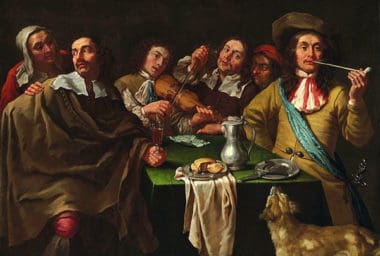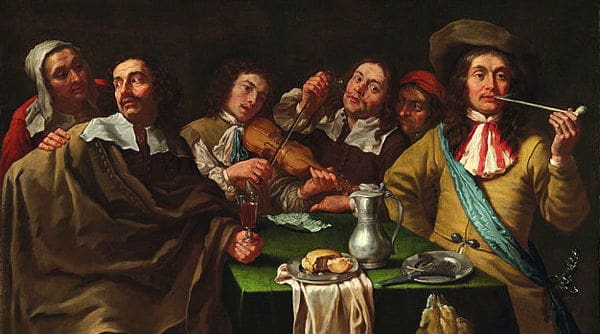I’ve heard about custody of the senses. What exactly is it and why should I practice it? Thank you Father. Your explanations always help.
Great question! Yes, we should all practice “custody of the senses.” The core meaning of this traditional phrase from our Catholic spirituality is fairly simple to grasp. It means taking care of what we pay attention to. Our senses put us into contact with reality. But in this fallen world, some realities can be unhealthy for us – these are the ones we want to guard against (“custody” comes a Latin word, “custos”, which means “guardian”). Our senses let ideas, feelings, and images into our minds and hearts. Just as we don’t let just anyone in the front door of our house, we should not let just anyone into our minds through the doorways of our senses.
Which Senses Do We Need to Guard?
The most obvious example has to do with what we look at – if we are always looking at sexy images, it’s going to be much harder for us to live a healthy chastity. If we are always watching shows and advertisements that depict a materialistic, superficial  lifestyle, it’s going to make it harder for us to keep our hearts focused on God and our minds seeing things with the eyes of faith. If we are constantly filling our imaginations with images of wealth and indulgence, it will be harder for us to be satisfied with the simple pleasures and simple treasures of a humble and Christ-centered lifestyle.
lifestyle, it’s going to make it harder for us to keep our hearts focused on God and our minds seeing things with the eyes of faith. If we are constantly filling our imaginations with images of wealth and indulgence, it will be harder for us to be satisfied with the simple pleasures and simple treasures of a humble and Christ-centered lifestyle.
Our other senses can also be occasions for trouble. Certain types of music or perfume may stimulate desires for harmful and sinful pleasures or even aggravate wounds by reminding us of past sins or hardships. And that, in turn, can make us more vulnerable to temptations. Over-indulging in pleasures of taste or physical comfort can also create a kind of imbalance in our souls, so that our natural inclinations to self-absorption are strengthened while our supernatural inclinations to self-giving and self-forgetfulness are weakened.
New Challenges
It’s worth mentioning in this context that we can also go to the other extreme. We can wrongly consider all sense pleasures evil, and so cut ourselves off from all of them. This can be a dangerous deviation in the spiritual life, because it can feed our pride. We purposely take on so many sacrifices and ascetic practices that we begin to feel superior to the poor, unenlightened people around us. Watch out when that starts to happen! Don’t require more sacrifice from yourself than God is asking of you, or else you may end up feeding spiritual egoism by trying to cut down on material self-indulgence.
In our society, custody of the senses applies in a special way to our consumption of mass media. It is so easy for us to imbibe way more than we need when it comes to news, entertainment, information, images, digital products, etc. Now that millions of hours of video and audio content are available at our fingertips 24/7, we have to exercise more intentional discipline in this regard than previous generations. How much news do you really need to drink in? How many people do you really need to follow on Facebook? How much do you really need to read/watch/listen to? We have to learn to be conscious and intentional in our use of these abundant resources. Use what helps you in your endeavor to live the life that God wants you to live, no more and no less.
Focusing on Jesus
The key is to live under the umbrella of God’s will. He can communicate himself to us through the healthy beauties and pleasures of this world – a magnificent sunset, a delicious meal, a spousal embrace. He created our capacity for pleasure and the realities that give us pleasure. He created our senses. Just because our fallen world and fallen nature have strong tendencies to misuse these gifts doesn’t mean that every use of them is dangerous. We need to keep our eyes “fixed on Jesus” (Hebrews 3:1), seeking to know him, love him, and follow him a little bit more each day, and he will guide us.
Thanks again for this question. I hope my answer helps, at least a little bit. God bless you!! Fr. John
Art: The 5 Senses, Gregorius van Oosterlinck, circa 1660, PD-US, Wikimedia Commons.


